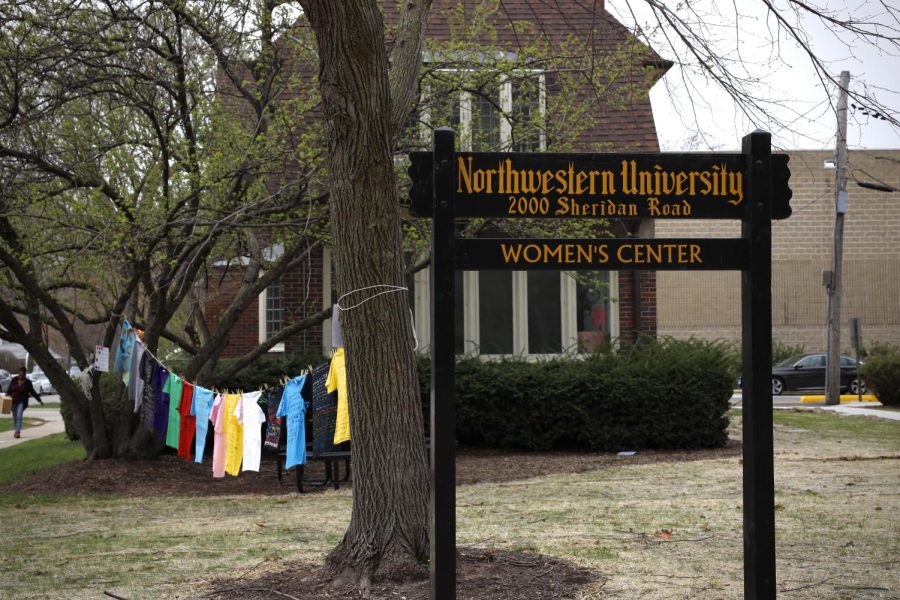Sami Schalk speaks on Black disability politics and the National Black Women’s Health Project
Daily file photo by Joanne Haner
The Women’s Center. Sarah Brown served as the introduction speaker for the Black feminist justice event.
May 15, 2022
University of Wisconsin-Madison gender studies Prof. Sami Schalk delivered the final talk of the Gender & Sexuality Studies speaker series on Black Feminist Praxis on Friday.
Schalk’s virtual presentation, titled “The Black Disability Politics of the National Black Women’s Health Project,” focused on empowering Black women and the intersections between race and disability.
“Black health activism generally … tends to be broad and inclusive of disability, but not primarily focused on it,” Schalk said. “This broadness is particularly reflective of the reality that Black people are more likely to be disabled … due to lack of educational, social and financial access to preventative care and early treatment, as well as medical racism.”
The series featured four speakers, including Ann Russo, Loretta Ross and Charlene Carruthers,who spoke on topics ranging from reproductive justice to abolition.
Gender and sexuality studies Prof. Sarah Brown, the director of the Women’s Center, served as the introduction speaker and reflected on the series.
“While there is a great deal of queer crip of color work taking place in the GSS program and throughout the University, this is the first chance in this series that we have had the chance to name it as such,” Brown said. “I really believe that it speaks to our values and the exigencies of our canon.”
Black disability politics center around anti-ableist arguments that aim to contextualize and address disability within racism and the intersections between ability and race, Schalk said. While sometimes combined with anti-ableist activism at large, Black disability politics also encompass topics like civil rights.
She said these politics focus on four key qualities: They are intersectional but race-centered, they do not rely on holding a disabled identity, they are holistic and broad and they are historical.
“Many Black people are disabled by secondary health effects of disease, as well as environmental racism, racial violence and state neglect,” Schalk said. “Black disability politics are often articulated and enacted with critical attention to the historical events, circumstances and legacies which have shaped experiences of disability within Black communities.”
Schalk also discussed how the NBWHP, founded to address Black women’s health and reproductive rights, has shifted from the self-help model since the 1980s and 1990s.
Instead of just centering on the absence of illness, the project’s definition of health focuses on promoting mental, emotional and spiritual well-being, including among the elderly and disabled people. The inclusion of spirituality is representative of a cultural approach to health, Schalk said.
“Spirituality, faith and religion are major parts of Black cultures and therefore critical to interpreting Black disability,” Schalk said. “The project’s cultural approach to health conceived a spirituality much more expansively, often explicitly discussing African and Caribbean spiritual practices outside of Christianity.”
The organization also committed itself to patients’ rights education, which provides Black women tips on empowerment in the medical system. Schalk said the resources the NBWHP provided include guides on how to choose a doctor, how to prepare for an appointment and what to do during a visit.
Schalk said the NBWHP has promoted Black disability politics by committing to these holistic measures. Her upcoming book, “Black Disability Politics,” will focus on the organization and the Black Panther Party, looking at their contributions to the ideology.
Women’s Center Associate Director Njoki Kamau, who asked questions on behalf of the audience, said she was glad for the opportunity to reflect on her time with the NBWHP.
“I was really looking forward to this topic because I remember in those early ʼ90s being very much a part of the National Black Women’s Health Project,” Kamau said. “It was so gripping. It was such a fresh moment for Black women, and it made us feel so hopeful and empowered.”
Email: [email protected]
Twitter: @joannah_11
Related Stories:
— Women’s Center spotlights disability justice with upcoming programming
— Gender and Sexuality Studies Program celebrates 45th anniversary


